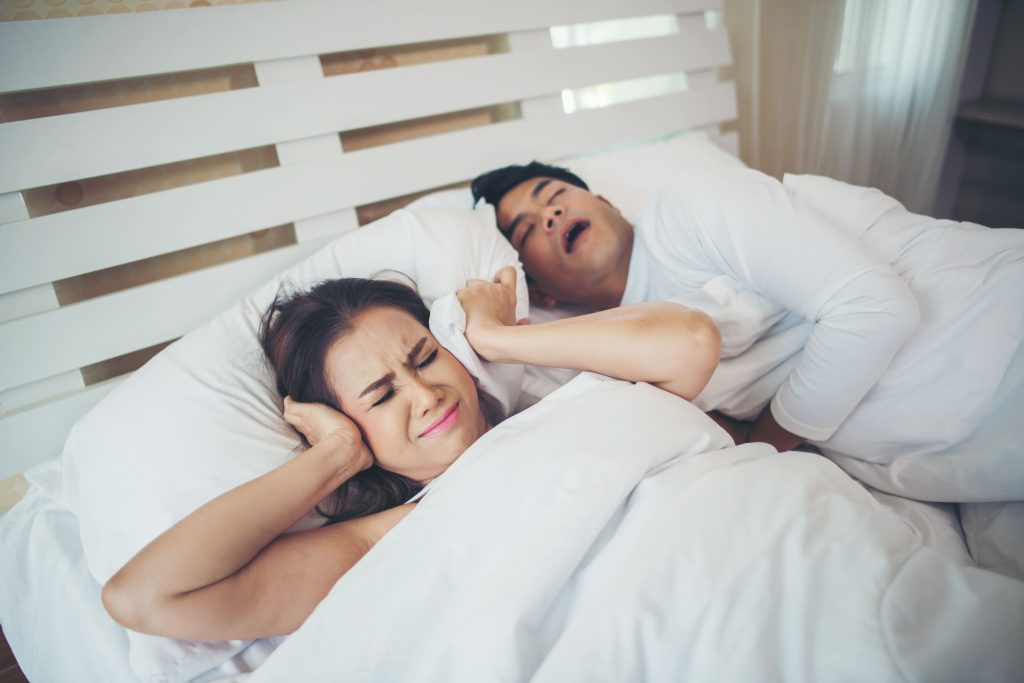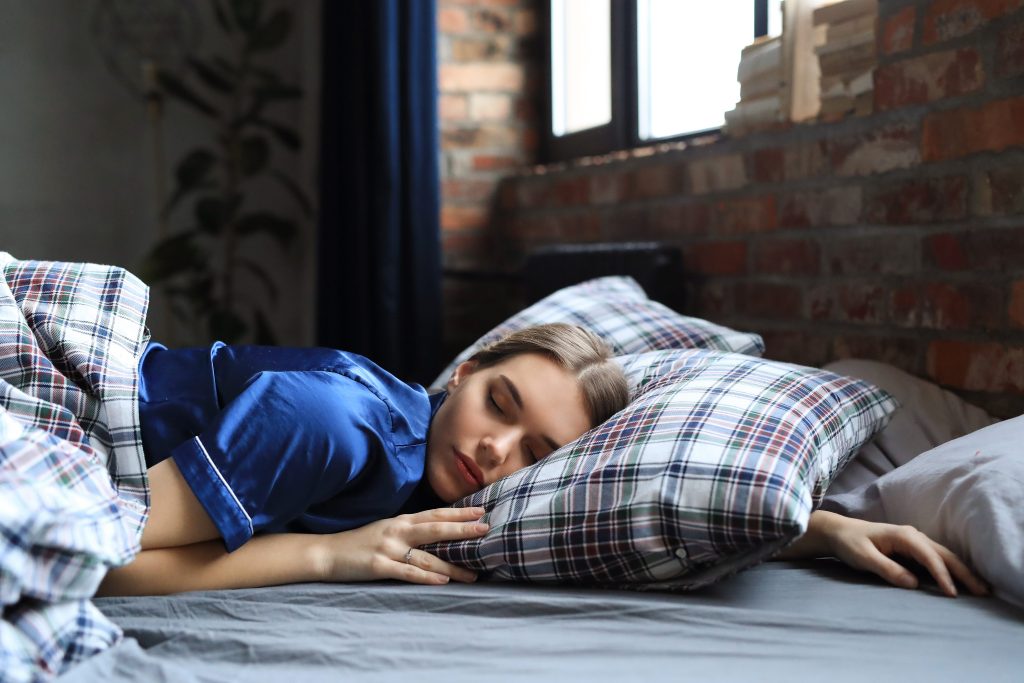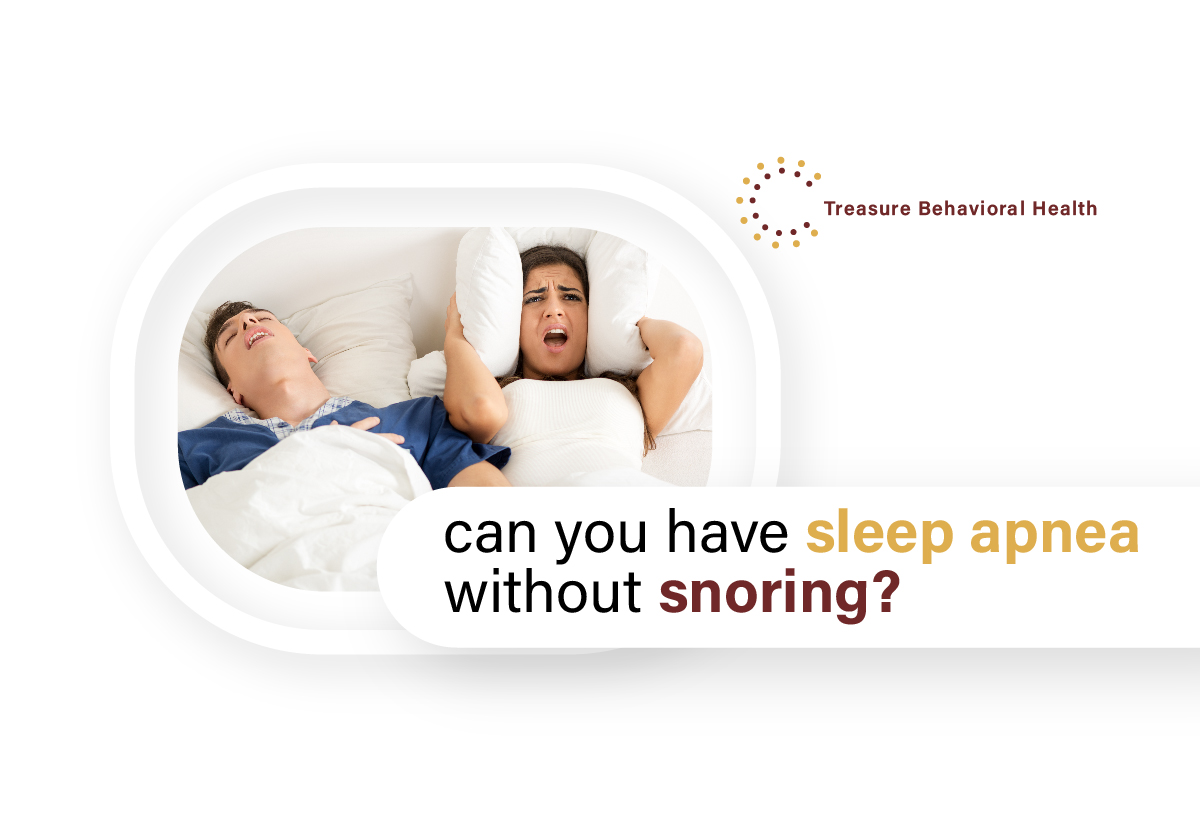Can you have sleep apnea without snoring? If yes, you are not alone a lot! It is estimated that around 30 million people in the U.S. are facing the issue of sleep apnea without snoring.
A good night’s sleep is critical for your health, but snoring and sleep apnea can be an unpleasant nighttime experience. Sleep apnea is a sleep disorder that disrupts your breathing while you sleep.
Likewise, you observe sudden excessive sleepiness in elderly ages and restlessness.
Snoring is widely recognized as the most prevalent symptom of sleep apnea. Ask your partner or anyone who has been diagnosed with obstructive sleep apnea.
You might not realize you have sleep apnea. However, if you feel exhausted or sleepy during the day or if you have inexplicable morning migraines, visit Treasure Behavioral Health for a diagnosis.
What Is Sleep Apnea?
Sleep apnea is a problem in which your breathing stops while you sleep. These ‘apneas,’ or frequent breathing pauses, might last 10 to 30 seconds throughout the night.
Most of the time, family members or partners are the first to recognize indicators of sleep apnea. Symptoms of sleep apnea may include:
- Snoring
- Headaches
- Night sweats
- Restlessness
- Cognitive impairment
- Daytime sleepiness
Is Snoring Hereditary?
While most obstructive sleep apnea causes are related to health conditions and are lifestyle-based, 40% of the other causes are hereditary. Moreover, a predisposition for snoring can be linked to other family facial and physical elements.
Just as physical attributes like eye and hair color are inherited, elements of bone and facial structure can be shared by a gene pool. The following physical features may facilitate snoring:
- Narrow throat
- Receded chin
- Small jaw
- Large tongue
- Large, soft palate
Can You Have Sleep Apnea Without Snoring?

Sleep apnea snoring is a stereotypical and distinctive symptom, but it is not always present. Snoring is a result of changes in the anatomy surrounding the airway. It does not always occur in all types of sleep apnea or all sleeping positions.
In central sleep apnea, apneas (pauses in breath) occur when the central nervous system “forgets” to tell the lungs to breathe.
Although many other daytime sleep apnea symptoms are similar, one of the ways central sleep apnea is diagnosed is by eliminating a common symptom of obstructive sleep apnea.
Furthermore, the sleeper’s position contributes significantly to snoring. Many people (with or without sleep apnea) snore while sleeping on their backs.
Thus, sleep apnea may persist when they lie on their side, although sleep apnea snoring may not.
Difference Between Insomnia and Apnea
| Sleep Apnea | Insomnia |
| Inconsistent breathing during sleep leads to waking up to breathe. | Difficulty falling or staying asleep. |
| Associated with the Environmental factors | Often associated with other health conditions |
| Insomnia and sleep apnea can co-occur. | Individuals with obstructive sleep apnea (OSA) may also experience insomnia. |
| Chronic insomnia can lead to serious health complications. | Untreated sleep apnea can increase the risk of other health issues. |
Hypersomnia With Sleep Apnea

Hypersomnia occurs when a person feels highly drowsy throughout the daytime. This could be due to neurological problems or other medical conditions, such as sleep apnea, but there is not always a definite cause.
Other terms for hypersomnia include excessive daytime sleepiness and hypersomnolence.
People with hypersomnia struggle to operate during the day. It is due to excessive sleepiness, which can impair focus and energy levels.
Can Sleep Apnea Cause Anemia?
Sleep apnea and anemia may cause similar symptoms, making it difficult to tell which illness is hurting your health. They may also help each other, even though they have different disorders and different symptoms.
Some specialists believe that anemia may cause sleep issues due to neurotransmitters. It includes serotonin and dopamine.
If a person suffers from sleep issues as a result of an iron deficiency, iron supplements may assist. However, it is possible to consume too much iron. Thus, people should consult their doctor before starting iron supplements.
What Happens When You Sleep High?
It’s why most people try marijuana. The main psychoactive ingredient, THC, stimulates the part of your brain that responds to pleasure, like food and sex. That unleashes a chemical called dopamine, which gives you a euphoric, relaxed feeling.
If you vape or smoke weed, the THC could get into your bloodstream quickly enough for you to get your high in seconds or minutes. The THC level usually peaks in about 30 minutes, and its effects may wear off in 1-3 hours.
There are the following things that you can observe while having a high sleep; these are:
- Enhance your senses (colors may appear brighter, noises may appear louder).
- Twist your perception of time.
- Hurt your motor abilities or skills that require your muscles to perform specific activities.
- Lower your inhibitions; you may have hazardous sex or incur other risks.
Concluding Words
Can you have sleep apnea without snoring? Snoring is just a sound that is generated during sleep, so it is not considered sleep apnea. It is just a sound that emerges in the airways of the throat. The loud snoring means you don’t have sleep apnea, but it has some characteristics in common.
With or without snoring, diagnosing sleep apnea can lead to operative treatment.
Book an appointment with Dr. Roberta Iyamu to discuss our treatment options and help you sleep restfully throughout the night.
Frequently Asked Question
How do you know if you have sleep apnea without snoring?
People with apnea frequently toss and shift during the night, indicating disturbed sleep. If you find yourself kicking, writhing, jerking, or waking up under a twisted mess of untidy linens, apnea could be the culprit.
What are the warning signs of sleep apnea?
Warning indicators of sleep apnea include excessive daytime tiredness.
- Loud snoring.
- Observed episodes of halted breathing while sleeping.
- Waking up during the night with gasping or coughing.
Is there silent sleep apnea?
While snoring is prevalent with sleep apnea, and you’re more likely to snore if you have it, you can still have sleep apnea without snoring. Central sleep apnea does not cause snoring since the body does not attempt to breathe. Snoring may not cause any significant adverse effects.
How do you rule out sleep apnea?
Attended polysomnography (level I study) is the gold standard for OSA diagnosis. It involves the collection of seven or more data channels. It includes an electroencephalogram and electrooculogram for sleep staging.



No comment